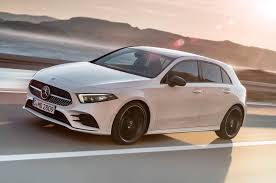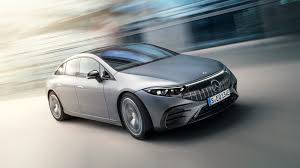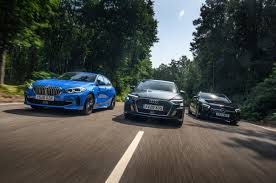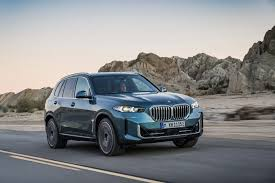Introduction Choosing the right engine is crucial when buying a new or used car. With emissions rules, rising fuel costs, and the EV boom, it’s more important than ever to know which option fits your lifestyle. What is a Petrol Car? Pros: Cons: What is a Diesel Car? Pros: Cons: What is a Hybrid Car? Types: Pros: Cons: Which One is Right for You? Driver Type Best Option City Commuter Petrol or Hybrid Long Distance Diesel Eco-Friendly Hybrid (or EV) Occasional Driver Petrol Cost Comparison Over 3 Years Environmental Impact Final Thoughts Not sure what’s best? Speak to a Carfundo expert for tailored advice based on your driving needs.

Introduction Buying a car is one of the biggest financial decisions many people make. Whether it’s a new or used car, a thorough inspection can save you thousands in future repairs and give you peace of mind. In this guide, we break down everything you need to inspect before buying a car, especially in the UK market. 1. Why Car Inspections Matter 2. Tools You’ll Need 3. Pre-Inspection Research 4. Step-by-Step Physical Inspection A. Exterior Check: B. Interior Check: C. Engine Bay: D. Test Drive: 5. Documentation Check 6. Questions to Ask the Seller 7. Use a Mechanic or Third Party Consider services like the RAC, AA, or a local garage for an independent vehicle inspection. 8. Post-Inspection Decision 9. Final Tip If you’re unsure, speak to a professional. At Carfundo, our team can help guide you through the entire buying journey. Get in touch for tailored advice.

Introduction Car finance can be a confusing topic for many UK buyers. With multiple finance options, APR rates, and hidden fees, it’s crucial to understand your choices before signing a deal. In this guide, we break down the different types of car finance, how APR works, and a real-world finance example for a £30,000 car. Types of Car Finance in the UK Understanding APR & Interest Rates APR (Annual Percentage Rate) determines the cost of borrowing. Choosing the Right Finance Option Conclusion Understanding car finance helps you save money and make informed decisions. Use Carfundo’s car finance calculator to compare deals and find the best option for your budget. Check latest finance deals on Carfundo

If you’re in the market for a hatchback that delivers both premium feel and affordability, you’re in luck. With a budget of under £30,000, you can get a well-equipped, stylish, and refined hatchback that feels like a step above the mainstream. Here, we explore five of the best premium hatchbacks, evaluating their pros and cons, best features, and why they deserve a place in your garage. 1. Audi A3 Sportback Why the Audi A3? The Audi A3 has long been a benchmark in the premium hatchback segment. It boasts a high-quality interior with soft-touch materials, a sleek infotainment system, and refined driving dynamics. Pros: ✅ Luxurious interior with high-tech virtual cockpit✅ Smooth ride quality with excellent sound insulation✅ Choice of efficient engines including a plug-in hybrid option Cons: ❌ Can get expensive with optional extras❌ Rear space isn’t class-leading Best Feature: The Audi Virtual Cockpit, which transforms the instrument cluster into a customizable digital display. 👉 Check the latest Audi A3 deals on Carfundo 2. BMW 1 Series (M Sport Trim) Why the BMW 1 Series? The BMW 1 Series is a driver-focused premium hatchback with a sporty yet comfortable ride. The M Sport trim gives it an aggressive look, enhanced handling, and a touch of BMW’s signature performance feel. Pros: ✅ Sporty handling with engaging steering feedback✅ High-quality interior with a driver-centric layout✅ Advanced tech including BMW’s iDrive infotainment system Cons: ❌ Slightly firm ride compared to rivals❌ Less spacious rear seats compared to some competitors Best Feature: BMW’s iDrive infotainment system, widely regarded as one of the best in the industry. 👉 Find BMW 1 Series offers at Carfundo 3. Mercedes-Benz A-Class (AMG Line) Why the Mercedes A-Class? If you want a hatchback with the most premium interior in the segment, the A-Class is the one to beat. Its sleek design, ambient lighting, and widescreen infotainment system set it apart. Pros: ✅ Class-leading infotainment with MBUX voice control✅ Premium feel with top-notch materials✅ Comfortable and efficient drive Cons: ❌ Firm ride in AMG Line trim❌ Expensive optional extras Best Feature: The MBUX infotainment system, featuring voice control, AI-driven assistance, and a dual-screen layout. 👉 Explore Mercedes A-Class options on Carfundo 4. Volkswagen Golf R-Line Why the VW Golf? The Golf R-Line offers premium refinement, a sporty design, and a well-balanced ride, making it one of the most versatile hatchbacks under £30,000. Pros: ✅ High build quality and solid German engineering✅ Excellent ride comfort and balance between sportiness and smoothness✅ Variety of engine options, including hybrid and diesel Cons: ❌ Infotainment touchscreen isn’t the most user-friendly❌ No AWD option unless you go for the Golf R (which is above budget) Best Feature: A perfect blend of sportiness and daily usability, making it a practical yet fun car. 👉 Discover VW Golf R-Line deals on Carfundo 5. Cupra Leon Why the Cupra Leon? The Cupra Leon is a sportier alternative to the Golf, with aggressive styling, a punchy engine, and track-inspired dynamics. Pros: ✅ Performance-oriented design and driving feel✅ Strong engine choices with great acceleration✅ Unique styling with copper-colored accents Cons: ❌ Harsher ride compared to some competitors❌ Not as widely available as Audi or BMW Best Feature: A driver-focused experience with a perfect mix of performance and everyday usability. 👉 Find the best Cupra Leon offers at Carfundo Conclusion: The Best Hatchback Under £30,000? For a luxury feel with everyday practicality, the Audi A3 is the best all-rounder. However, if you prefer sporty driving, the BMW 1 Series or Cupra Leon will be your best bet. The Mercedes A-Class is for those who love technology and a plush interior, while the VW Golf offers reliability and balance. Whatever you choose, make sure to explore the best offers at Carfundo for expert reviews, exclusive deals, and financing options! 🚗💨

The electric vehicle (EV) market in the UK has grown rapidly in recent years, with premium car manufacturers leading the way in innovation, luxury, and performance. If you’re considering a high-end EV, brands like Mercedes-Benz, BMW, Audi, Jaguar, Land Rover, and Tesla offer some of the best options in the market. In this guide, we’ll explore the top premium EVs available in the UK, evaluating their performance, technology, luxury features, and value for money. 1. Mercedes-Benz: Luxury Meets Cutting-Edge EV Technology Mercedes-Benz EQS The Mercedes EQS is the brand’s flagship electric saloon, offering exceptional luxury and state-of-the-art technology. Key Features: Explore Mercedes EQS Deals on Carfundo Mercedes-Benz EQE If you want a premium EV but don’t need the full size of the EQS, the EQE is a compelling alternative. Key Features: See More Mercedes EQE Options on Carfundo 2. BMW: Combining Driving Pleasure with Electric Innovation BMW iX The BMW iX is a large SUV with impressive performance and a futuristic design. Key Features: Check BMW iX Deals on Carfundo BMW i4 For those seeking a sportier EV, the BMW i4 is a great option. Key Features: Browse BMW i4 Offers on Carfundo 3. Audi: Combining Performance with Practicality Audi e-tron GT The Audi e-tron GT is one of the most exciting performance EVs available. Key Features: Find Audi e-tron GT Offers on Carfundo Audi Q8 e-tron For those looking for an electric SUV, the Q8 e-tron is a premium choice. Key Features: Check Audi Q8 e-tron Deals on Carfundo 4. Jaguar: British Elegance with Electric Power Jaguar I-PACE The Jaguar I-PACE was one of the first premium electric SUVs and remains a great option. Key Features: Explore Jaguar I-PACE Deals on Carfundo 5. Land Rover: Luxury SUVs Going Electric Range Rover Electric (Upcoming) Land Rover is set to launch its first fully electric Range Rover in 2024. Expected Features: 6. Tesla: The Pioneer of Premium EVs Tesla Model S Plaid For those who want the fastest EV, the Model S Plaid is a top contender. Key Features: See Tesla Model S Deals on Carfundo Tesla Model X For those looking for an electric SUV with practicality and performance, the Model X is a great choice. Key Features: Explore Tesla Model X Options on Carfundo Which Premium EV Should You Buy? Conclusion The UK’s premium EV market is booming, with top brands like Mercedes, BMW, Audi, Jaguar, Land Rover, and Tesla leading the way. Whether you prioritise luxury, performance, or practicality, there’s an EV that suits your needs. For more information on premium EVs and the latest deals, visit Carfundo. SEO Optimisation Strategies Used in This Blog: For more premium car reviews and EV guides, stay updated with Carfundo!

When buying a used premium car, ensuring the tyres are in good condition is essential for safety, performance, and avoiding unexpected costs. One of the most critical aspects of tyre health is tread depth. In this guide, we’ll walk you through everything you need to know about checking tyre depth when purchasing a high-end vehicle, helping you make an informed decision. Why Tyre Tread Depth Matters Tyre tread depth plays a crucial role in maintaining grip, handling, and braking performance. Insufficient tread depth can: The UK legal minimum tread depth is 1.6mm across the central three-quarters of the tyre. However, most experts recommend replacing tyres when the tread falls below 3mm for optimal performance. How to Check Tyre Tread Depth: Step-by-Step Guide 1. Visual Inspection Before using any tools, start with a simple visual check: 2. Using a 20p Coin The 20p coin test is a quick and easy way to check tread depth: 3. Using a Tyre Depth Gauge For a more precise measurement, use a tyre tread depth gauge: 4. Checking for Uneven Wear Premium cars often have high-performance tyres that wear differently depending on alignment and driving style. Common wear patterns include: 5. Checking the Spare Tyre If the car comes with a spare tyre, inspect it for: When to Replace Tyres on a Used Premium Car If the tyre tread is below 3mm, consider replacing the tyres soon. Other signs that tyres need replacing include: The Cost of Tyre Replacement for Premium Cars Luxury cars often require premium tyres, which can be expensive. Estimated replacement costs for popular brands: How to Negotiate a Better Deal Based on Tyre Condition If the tyre tread is low, you can use it as a bargaining tool when buying a used premium car: Where to Buy Replacement Tyres for Premium Cars If you need new tyres, consider reputable retailers: For exclusive deals on premium used cars, check Carfundo. Conclusion Checking tyre tread depth when buying a used premium car is an essential step in ensuring safety and getting the best value for your investment. Using the 20p coin test or a tread depth gauge, you can easily assess whether the tyres are in good condition or need replacing. If tyre tread is low, negotiate a better price or request replacements before purchasing. For more expert guides on buying and maintaining premium cars, visit Carfundo today!

Polestar 7 Reshaping The European Market Polestar has confirmed its latest creation, the Polestar 7, a premium electric SUV poised to rival the Range Rover Evoque. This groundbreaking model marks Polestar’s first production vehicle to be built in Europe, showcasing the brand’s ambitions to expand its presence and redefine the premium EV market. At Carfundo, we’re committed to keeping you updated on the latest automotive advancements, and the Polestar 7 is undoubtedly one of the most anticipated EVs of the decade. Read on to discover everything we know about this future-forward SUV. Polestar 7: What We Know So Far The Polestar 7 is set to enter the ever-growing market for electric SUVs, a segment Polestar’s CEO Michael Lohscheller calls “the biggest and fastest-growing” for EVs. Designed to replace the Polestar 2 liftback, the Polestar 7 will adopt a more traditional SUV form, appealing to drivers seeking a combination of style, performance, and sustainability. The Swedish firm has ambitious goals to boost global sales by 30-35% over the next three years, with the Polestar 7 playing a central role in this strategy. Unique Features and Design Philosophy Polestar’s Head of Design, Philipp Römers, hinted that the Polestar 7 would embody the brand’s progressive design ethos. Each Polestar model has a unique selling point, and the 7 will continue this trend with an emphasis on standout aesthetics and advanced performance. While details remain under wraps, Römers assured us that the Polestar 7 will surpass customer expectations in every way. Expanding European Production For the first time, Polestar is moving production to Europe, potentially leveraging Geely’s upcoming plant in Slovakia. This shift aligns with Polestar’s strategy to diversify its manufacturing footprint, which currently includes facilities in China, the US, and South Korea. This European base will further strengthen Polestar’s ‘asset-light’ business model while reducing production costs and delivery times for European customers. Discover our exclusive insights into the latest electric SUVs and how they’re transforming the automotive landscape. Polestar’s Revised Business Strategy After a year of transition in 2024, Polestar is recalibrating its operations under the leadership of Michael Lohscheller, formerly of Opel. His updated strategy focuses on three key areas: Learn more about Polestar’s commitment to innovation in our car reviews section. Key Models Leading the Charge Polestar’s current line-up is a testament to its vision for the future: These models have laid a strong foundation for Polestar’s growth. The arrival of the Polestar 7 will solidify its position in the competitive EV market. Polestar’s Commitment to Sustainability Polestar has consistently prioritised sustainability in its vehicle production. The Polestar 0 project, for example, aims to create a truly climate-neutral car by 2030. The brand’s electric-only line-up further enhances its ability to achieve these environmental goals, and its innovative approach to manufacturing sets an example for the industry. Explore Polestar’s sustainability efforts and compare them to competitors like Tesla in our EV sustainability guide. The Future of Polestar The Polestar 7 is scheduled for release in 2027, although the exact launch date remains unconfirmed. By then, Polestar hopes to have firmly established itself as a key player in the EV market, thanks to its relentless focus on innovation, design, and performance. As Polestar transitions to a unified platform for its vehicles, the brand will streamline operations and improve efficiency. This transition not only ensures cost-effectiveness but also allows for greater flexibility in responding to market demands. Why the Polestar 7 Matters for UK Drivers The Polestar 7 promises to combine practicality, luxury, and cutting-edge technology, making it an ideal choice for UK drivers looking to invest in a premium electric SUV. Its anticipated range, performance, and design will likely rival competitors such as the Range Rover Evoque and BMW iX3. Ready to explore more about the latest EVs? Visit our Carfundo deals page to find exclusive offers on premium electric cars. Final Thoughts The Polestar 7 represents a pivotal moment for the Swedish EV manufacturer. With its move to European production, ambitious sales targets, and focus on sustainability, Polestar is positioning itself as a leader in the premium electric vehicle market. Stay tuned to Carfundo for the latest updates on the Polestar 7 and other groundbreaking vehicles. Don’t forget to follow us for in-depth reviews, comparisons, and exclusive deals on the cars shaping the future of the automotive industry. Discover more: Check out our detailed review of the Polestar 2 to see how the brand’s legacy continues to evolve. Checkout from our friends over at autocar review on the Polestar 7.

2024 BMW 1 Series vs. Audi A3 vs. Mercedes A-Class: Premium Hatchback Showdown The premium hatchback segment for 2024 presents a tough choice among three titans of the automotive world: the BMW 1 Series, Audi A3, and Mercedes A-Class. Each offers compelling features, cutting-edge technology, and a premium driving experience, making them standout options for discerning buyers. In this detailed comparison, we explore their models, fuel options, specifications, pricing, and which one delivers the best value for money, driving experience, and comfort. Models and Engine Options BMW 1 Series (2024) The BMW 1 Series retains its sporty character with three main engine options: Petrol: 118i (1.5L, 136hp) and M135i xDrive (2.0L, 306hp). Diesel: 116d (2.0L, 122hp) and 120d (2.0L, 190hp). Plug-in Hybrid: BMW hasn’t introduced a PHEV variant for the 1 Series yet, focusing on its internal combustion engines. Audi A3 (2024) Audi offers the A3 in a variety of configurations: Petrol: 35 TFSI (1.5L, 150hp) and S3 (2.0L, 310hp). Diesel: 30 TDI (2.0L, 116hp) and 35 TDI (2.0L, 150hp). Plug-in Hybrid: The A3 40 TFSIe combines a 1.4L petrol engine with an electric motor for a combined output of 204hp. Mercedes A-Class (2024) The A-Class lineup continues to impress with its versatility: Petrol: A200 (1.3L, 163hp) and AMG A35 (2.0L, 306hp). Diesel: A180d (1.5L, 116hp). Plug-in Hybrid: A250e, boasting 218hp with an all-electric range of up to 40 miles. Exterior Design BMW 1 Series: Bold kidney grilles, sleek LED headlights, and dynamic proportions give the 1 Series a sporty stance. The M Sport trim enhances its aggressiveness with larger wheels and aerodynamic touches. Audi A3: Audi’s signature single-frame grille and sharp Matrix LED headlights create a refined and modern aesthetic. The S Line trim adds sporty flair with unique bumpers and side skirts. Mercedes A-Class: The A-Class exudes elegance with its minimalist grille, sculpted body lines, and LED lighting. AMG Line trims feature a sportier design with unique alloy wheels and aggressive styling. Interior and Technology BMW 1 Series The 1 Series offers a driver-focused cockpit with: Infotainment: 10.25-inch touchscreen with BMW’s latest iDrive system. Comfort: Adjustable sport seats with premium upholstery options. Extras: A heads-up display and ambient lighting for an immersive experience. Audi A3 The Audi A3 combines sophistication with practicality: Infotainment: 10.1-inch touchscreen with MMI Navigation Plus and Virtual Cockpit. Comfort: Ergonomic seats with Alcantara and leatherette trims. Extras: Bang & Olufsen sound system for audiophiles. Mercedes A-Class The A-Class cabin is a blend of luxury and tech: Infotainment: Twin 10.25-inch displays powered by the MBUX system with AI-driven voice control. Comfort: Multi-contour seats with optional massage functions. Extras: Advanced ambient lighting with 64 colors. Driving Experience BMW 1 Series: Known for its agile handling and rear-wheel-drive feel (in select trims), it’s perfect for driving enthusiasts. Audi A3: Balanced and composed, with Quattro AWD available in higher trims for extra grip. Mercedes A-Class: Prioritizes comfort but doesn’t shy away from spirited driving, especially in AMG versions. Value for Money Petrol vs. Diesel vs. Plug-in Hybrid Petrol: The BMW 118i, Audi A3 35 TFSI, and Mercedes A200 deliver solid performance for city and highway use. Diesel: Ideal for long-distance drivers; the BMW 120d offers more power, while the Audi 35 TDI and Mercedes A180d are efficient but slightly underpowered. Plug-in Hybrid: The Audi A3 40 TFSIe and Mercedes A250e are excellent for short commutes with electric-only driving, though they come at a higher upfront cost. Pricing BMW 1 Series: Starting at £31,500, rising to £44,500 for the M135i xDrive. Audi A3: Starting at £30,700, with the S3 topping out at £46,000. Mercedes A-Class: Starting at £31,200, with the AMG A35 priced around £45,000. Best for Comfort The Mercedes A-Class shines in terms of interior luxury, offering superior seat comfort and a quieter cabin. The ambient lighting adds an extra layer of elegance, making it the most relaxing ride. Best Driving Experience For enthusiasts, the BMW 1 Series delivers unmatched handling and responsiveness, particularly in the M135i xDrive. Audi’s Quattro-equipped A3 comes a close second, offering sure-footed confidence. Best Value for Money The Audi A3 strikes the best balance between cost and features, particularly in the plug-in hybrid variant. The BMW 1 Series offers better driving dynamics, but the A3 edges ahead in terms of versatility and overall appeal. Conclusion Choosing between these premium hatchbacks ultimately depends on your priorities. For spirited driving, go for the BMW 1 Series. If you want tech and a balanced package, the Audi A3 is hard to beat. For pure comfort and luxury, the Mercedes A-Class stands tall. Explore the latest BMW, Audi, and Mercedes deals on our Carfundo Deals Page. For detailed reviews and pricing insights, check out Carwow. Let Carfundo help you find the perfect premium hatchback that matches your needs. Contact us today!

Explore a wide selection of BMW X5 vehicles for sale in the UK. Discover competitive prices, detailed listings, and find your perfect luxury SUV today! At Carfundo, we specialize in BMW X5 for Sale in the UK also reviewing and showcasing the finest luxury vehicles, and the BMW X5 is a standout in the luxury SUV market. As one of the most popular German SUVs in the UK, the BMW X5 offers a perfect combination of luxury, performance, and family-friendly practicality. Whether you’re looking for a vehicle with advanced technology or exceptional driving dynamics, the BMW X5 is the ultimate choice for UK families. In this blog, we’ll dive into the BMW X5 trim levels, explore its pros and cons, highlight its key specifications, and compare it to its biggest rival, the Mercedes-Benz GLE. BMW X5 for Sale in the UK and Trim Levels in the UK At Carfundo, we know bmw x5 suv for sale because that choosing the right trim level is essential for any car buyer. The BMW X5 offers a range of trims that cater to different driving preferences and needs, from performance enthusiasts to eco-conscious drivers. 1. BMW X5 xDrive30d M SportThis base diesel trim is a popular choice for buyers seeking both fuel efficiency and luxury. Powered by a 3.0L inline-six engine with 282 bhp, it offers a smooth driving experience with BMW’s xDrive all-wheel-drive system. 2. BMW X5 xDrive40i M SportThe xDrive40i provides a powerful yet refined petrol option, featuring a 3.0L turbocharged engine with 335 bhp. It’s an excellent balance bmw x5 for sale uk for those who want BMW luxury without compromising on power. 3. BMW X5 M50dBMW x5 suv for sale For those who prioritize performance, the M50d delivers a thrilling driving experience with its quad-turbocharged 3.0L engine, producing an impressive 394 bhp. 4. BMW X5 xDrive45e Plug-in HybridAs eco-conscious driving becomes more important, the xDrive45e plug-in hybrid combines a petrol engine with an electric motor, delivering 389 bhp and an all-electric range of up to 50 miles—perfect for reducing emissions in city driving. 5. BMW X5 MAt the top of the range, the BMW X5 M is built for drivers seeking high performance, featuring a 4.4L twin-turbo V8 engine with 616 bhp. It’s ideal for those who want supercar performance in a luxury SUV. BMW X5 Pros and Cons Pros: Cons: Why the BMW X5 is the Ultimate Family SUV At Carfundo, we understand that the BMW X5 is the go-to German luxury SUV for families because of its perfect mix of style, comfort, and performance. Here’s why: Key BMW X5 Specifications BMW X5 vs. Mercedes-Benz GLE: A Comparison At Carfundo, we know that many buyers are torn between the BMW X5 and the Mercedes-Benz GLE when shopping for the best luxury SUV. Here’s how the two stack up: Performance: Interior and Technology: Driving Dynamics: Fuel Economy and Hybrid Efficiency: Conclusion: Explore the BMW X5 on Carfundo The BMW X5 stands out as the ultimate German family SUV in the UK, offering unmatched luxury, space, and performance. Whether you’re looking for eco-efficiency with the plug-in hybrid, or thrilling acceleration with the X5 M, this SUV caters to all your family’s needs while delivering a premium driving experience. At Carfundo, we specialize in helping you find the perfect luxury SUV for your needs. If the BMW X5 sounds like the right fit for you, we invite you to explore our range of BMW X5 listings. Ready to find your next BMW X5? Head to Carfundo and start your search today! Search BMW X5 models and discover why this German SUV is perfect for your family!

n n n When it comes to choosing the cheapest suv uk your family, several factors come into play. From spacious interiors and safety features to fuel efficiency and engine performance, the perfect family SUV needs to tick all the right boxes. Whether you’re looking for a budget-friendly option, a mid-range model with more features, or a luxurious high-end SUV, there’s something out there for everyone. Here, we rank the top SUVs for families in the UK market, divided into three categories: Low Luxury, Mid Luxury, and High Luxury. n n n n Low Luxury SUVs (Under £40,000) n n n n n 1. Best family suv uk Dacia Duster n n Why it’s good: The Dacia Duster is renowned for its affordability best family suv uk without compromising on essential features. It offers a rugged design, ample space, and practical functionality. Ideal for budget-conscious families who need a reliable vehicle for both city and rural driving. n n Pros: n n Extremely affordable n Good off-road capability n Spacious interiornn n n Cons: n n Basic interior materials n Limited tech features n Engine noise can be intrusiven n n Ideal Engine Size: 1.0 to 1.5 litres n n n n n n 2. Kia Sportage n n Why it’s good: The Kia Sportage is a stylish and versatile SUV that provides a smooth ride and a comfortable interior. It cheapest suv uk comes with a generous warranty and a variety of engine choices. Perfect for small families looking for a reliable and economical vehicle. n Pros: n n Attractive design n Good fuel economy n Excellent warrantyn n n Cons: n n Limited third-row seating n Average performance n Some plastic interior partsn n n Ideal Engine Size: 1.6 to 2.0 litres n n n n n n n 3. cheapest suv uk Hyundai Tucson n n Why it’s good: The Hyundai Tucson offers a perfect blend of style, comfort, and technology. It’s spacious, reliable, and comes with a comprehensive safety package. Great for tech-savvy families who value safety and modern design.n n Pros: n n High safety ratings n Modern design n Advanced tech featuresn n n Cons: n n Base engine is underpowered n Higher trims can be expensive n Limited off-road capabilityn n n Ideal Engine Size: 1.6 to 2.0 litres n n n n n 4. Nissan Qashqai n n Why it’s good: The Nissan Qashqai is one of the best-selling SUVs in the UK, thanks to its practicality, efficient engines, and user-friendly technology. Ideal for urban families who need a compact yet spacious cheapest suv uk vehicle. Pros: Excellent fuel efficiency Comfortable ride High resale value Cons: Limited rear-seat space Average performance Infotainment system can be slow Ideal Engine Size: 1.3 to 1.7 litters 5. Peugeot 3008 Why it’s good: The Peugeot 3008 stands out with its stylish design, high-quality interior, and advanced features. It’s a practical choice for families seeking value for money. Suitable for those who appreciate a touch of elegance in their daily drive. Pros: Attractive interior Good driving dynamics Advanced safety features Cons: Smaller boot space Somewhat firm ride Expensive higher trims Ideal Engine Size: 1.2 to 2.0 liters Mid Luxury SUVs (£40,000 – £80,000) 1. Volvo XC60 Why it’s good: The Volvo XC60 is a premium SUV that combines luxury, safety, and Scandinavian design. It’s spacious, comfortable, and packed with cutting-edge technology. Ideal for families who prioritize safety and comfort on the road. Pros: Top-notch safety features Luxurious interior Smooth ride Cons: Higher running costs Limited third-row seating Infotainment system can be complicated Ideal Engine Size: 2.0 liters 2. BMW X3 Why it’s good: The BMW X3 offers a dynamic driving experience with its powerful engines and sporty handling. It’s also equipped with luxurious interiors and advanced tech. Perfect for families who enjoy a sporty and luxurious driving experience. Pros: Strong performance High-quality interior Advanced driver-assistance features Cons: Expensive options Firm ride Average rear-seat space Ideal Engine Size: 2.0 to 3.0 liters 3. Audi Q5 n n Why it’s good: The Audi Q5 is a well-rounded SUV that excels in comfort, technology, and performance. It’s stylish and offers a refined driving experience. Great for families looking for a balance of luxury and practicality.n n Pros: n n Comfortable ride n Premium interior materials n Advanced tech featuresn n n Cons: n n Limited cargo space n Expensive options n Average reliability ratingsn n n Ideal Engine Size: 2.0 to 3.0 litres n n n n n n 4. Mercedes-Benz GLC n n Why it’s good: The Mercedes-Benz GLC is a luxurious SUV that boasts a sophisticated design, plush interiors, and a host of advanced features. Ideal for families seeking a smooth and upscale driving experience.n n Pros: n n Luxurious interior n Smooth and quiet ride n Advanced safety featuresn n n Cons: n n High running costs n Limited rear visibility n Complex infotainment systemn n n Ideal Engine Size: 2.0 to 3.0 litres n n n n n n 5. Jaguar F-Pace n n Why it’s good: The Jaguar F-Pace offers a unique blend of performance and practicality. It has a sporty design, powerful engines, and a spacious interior. Perfect for families who want a combination of sporty dynamics and luxury.n n Pros: n n Strong performance n Stylish design n Spacious cabinn n n Cons: n n Expensive options n Firm ride n Average fuel economyn







